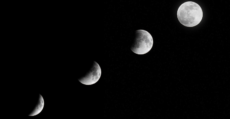Reference: Fataawa Ash-Shaykh Muhammad bin Saaleh al-‘Uthaymeen – v2/p671-691
Question: A person fasts the first 10 days of Dhul-Hijjah. Then intends to make Hajj. Should he fast during these days or not? And is it a condition that you have to fast all of the days or can you fast some of the days (for the one fasting on a voluntary basis)?
Response: Fasting during the first 10 days of Dhul-Hijjah is not obligatory. One can fast if he wants to and if he wants, he does not have to fast. This applies to him whether he is traveling to make Hajj or remains in his country. This is because every fast that is optional, then the person has been given a choice. So based upon this, if he is to remain in his country and wishes to fast, then he can do so. However if he travels and finds it difficult to fast, then he does not keep the fast. As it is not correct for the one who finds it difficult to fast on a journey, to then fast. This applies to both obligatory and voluntary fasts. However (if he does fast whilst on Hajj) then he does not fast on the day of ‘Arafah. As the Messenger of Allaah-Sallaahu ‘Alaihee wasallam-did not fast on the day of ‘Arafah. And it is narrated from him that he-Sallaahu ‘Alaihee Wasallam-prohibited fasting the fast of ‘Arafah in ‘Arafah.
صيام عشرة ذي الحجة لمن أراد الحج
المرجع: فتاوي الشيخ محمد بن عثيمين: 2/ ص.671-691
السؤال: من كان يصوم عشرة ذي الحجة فأراد أن يحج فهل يصومهن أم لا؟ و هل يشترط أن تصام جميع الايام العشرة أم يجوز صيام بعضها لمن أراد التطوع؟
الجواب: صيام عشرة ذي الحجة ليس بفرض فان شاء الانسان صامها و ان شاء لم يصمها سواء سافر اِلى الحج أم بقي في بلده لان كل صوم يكون تطوعاً فالانسان فيه مخير و على هذا فاذا كان في بلده و أحب أن يصوم فليصم فاذا سافر ورأى المشقة في الصوم فانه لا يصوم لانه لا ينبغي لمن شق عليه الصوم في السفر أن يصوم لا فرضاً و لا نفلاً و لكن في عرفة لا يصوم لان الرسول عليه الصلاة و السلام كان مفطراً في يوم عرفة و قد روى عنه أنه نهى عن صوم عرفة بعرفة.





